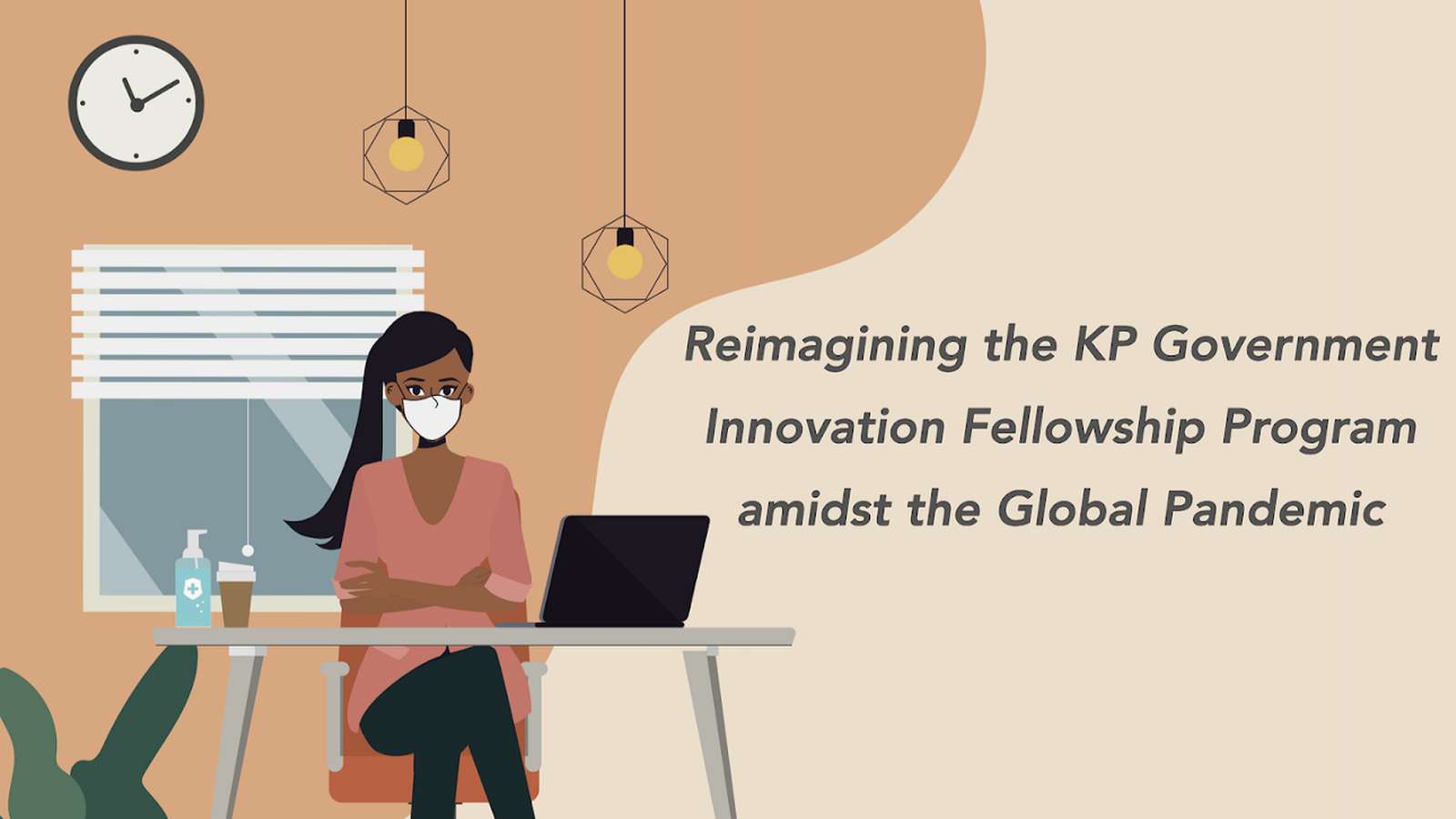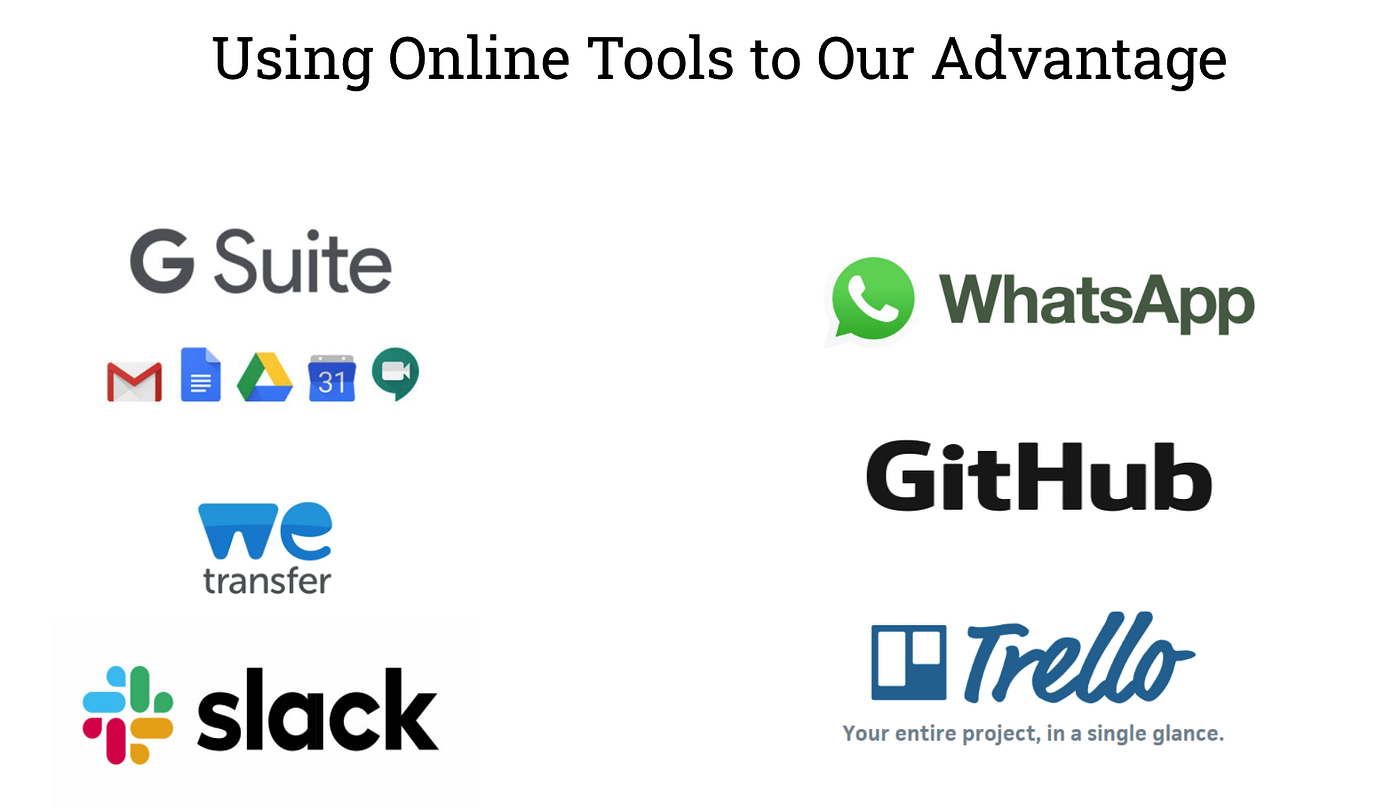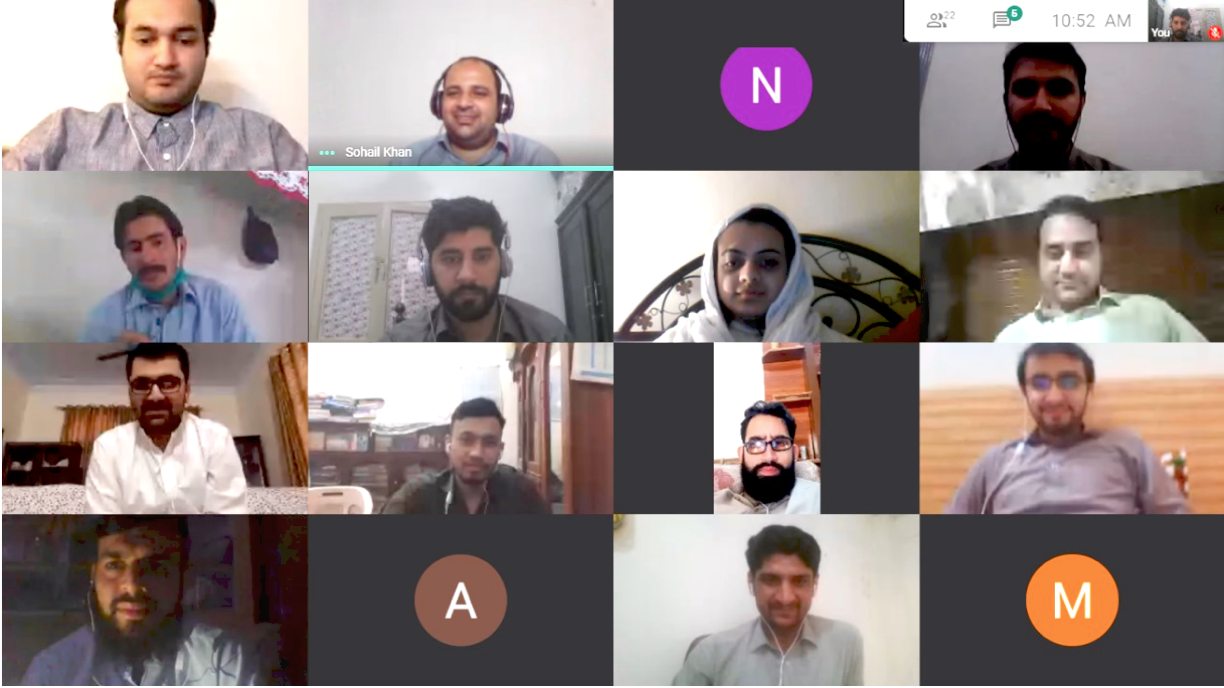
As we were getting ready to launch the sixth cycle of the KP Government Innovation Fellowship Program (the launch was planned for April 2020), the COVID-19 outbreak in late February forced us to go back to the drawing board, delay the launch, and rethink how to run the Fellowship amidst a global pandemic and strict social distancing guidelines.
When the government decided to impose a strict lockdown to contain the virus, our launch calendar was disrupted. It quickly became clear that the lockdown would not end anytime soon, and in the wake of these developments, we realized it would be impossible to execute the Fellowship as we have done in the past.
The KP Government Innovation Fellowship Program, run by Code for Pakistan in partnership with KPITB and the World Bank, brings together a cohort of 20 Fellows, who work in a coworking environment at Durshal (a co-working space by KPITB). It no longer seemed to be a possibility that they could continue to work in this way, while we also ensured the health and safety of the Fellows and our team.
Therefore, the team started working on designing an alternative methodology for the sixth Fellowship cycle. The only alternative in the given situation was to run the programme remotely. A few aspects of the fellowship cycle were taken into consideration such as the kinds of online tools to be used, ways in which user research would be conducted remotely, approvals for online recruitment (technical tests and interviews) from our partners, and design of the online process. This was a crucial as well as a critical task for the team. During the brainstorming phase, we also identified the various challenges we would face during our new approach along with mitigation strategies. We moved swiftly as we knew we would need to work efficiently and be ready to support the government at this critical juncture. In order to facilitate various government departments during the pandemic, we re-evaluated the problem statements received earlier to identify high-priority departments and areas to work on under this state of emergency.
Within two weeks, the team put together a proposal for a hybrid Fellowship Program. The proposal was then submitted to KPITB and the World Bank. This new approach meant that all the activities which normally took place at Durshal, would have to move online. Once the proposal was approved, the Fellowship team continued shortlisting and then screening applicants for the sixth cycle.
The Virtual Fellowship Program

During previous Fellowship cycles, the Fellows worked out of the Durshal co-working space. They attended daily stand up meetings, worked on the development of their projects and sat through the curriculum sessions together. In some cases, they would be placed within the government departments. In-person meetings with government focal persons happened regularly and we invited key players from the government to demo days and other events. Typically, we divide the Fellows into teams and they work closely with the partnering government departments. This includes multiple visits to the various departments to gather requirements and for brainstorming. There are also user research phases where the Fellows conduct surveys to identify the specific needs of users, to create a robust solution and end product that genuinely meets those needs.
This year, we are moving as much of this as possible, online. Teams are relying on telecommuting for interaction with each other, for progress updates, for check-ins with the management team and for meetings with focal persons.

In the remote Fellowship we will be using online collaboration tools and software to work on projects remotely
There are different components to this hybrid model. Now that meetings and interviews with the government departments are difficult to have in person, we have facilitated those meetings on Google Meet and Live Video Sessions instead. In case of complex requirements or understanding department workflows, we will facilitate an in-person department visit, but this will be considered only for high-priority meetings, and we will ensure compliance with strict health and safety SOPs as set by the government.
For the user research phase, we are relying on online forms and survey tools to gather data surveys from the general public. We are using popular social media platforms such as Facebook and Twitter to create polls for citizens’ feedback on specific topics relating to the products under development for different government departments.
Another key component of the Fellowship Program is mentoring and training sessions. The Fellowship management team redesigned the Fellowship curriculum, and most session formats. As we are moving on in this cycle, we are facilitating these sessions and workshops on online platforms as well, and have ensured that some of these sessions are recorded so the fellows can review and revisit key points later.
The Recruitment Process
The recruitment process consists of the following stages:
- Call for applications
- Shortlisting of applicants
- Technical test
- Interviews
- Final selection
- Orientation of Fellows
Just before the outbreak of COVID-19, the team had already received 3,118 applications and had started screening potential candidates for the test. Typically, once the initial screening process is completed, we invite the shortlisted candidates for a technical test and in-person interview. However, this time given the circumstances, we conducted online tests and interviews. The interviews were conducted by the Fellowship Recruitment Committee comprising members from the KPITB, Code for Pakistan and the World Bank. The interview format was similar to a traditional in-person interview. The candidates were asked to turn on their webcams to ensure the right candidate is appearing for the interview. In case the candidates faced any technical issue, such as interrupted internet connection, during the interview, we allowed them adequate time, or rescheduled the interview.

Using Google CoLaboratory and Github for Online Technical Assessments
A total of 120 candidates were invited for an online interview. These candidates were from various fields including data sciences, full stack development, mobile application development, UI/UX graphic designing and content writing. The interviews were carried out in two rounds , as the provincial Department of Health requested that one of the Fellowship teams start working with them earlier than the rest of the Fellows, on a time-sensitive project involving data collection and patient management. Therefore, a few interviews were conducted earlier for certain candidates with a data science background to expedite recruitment for this team.
Within three days, our team had interviewed 24 candidates. The second round of interviews began a week later, where the remaining 96 candidates were interviewed and those interviews were concluded within another two weeks.
After the selection of the final 20 candidates, induction was held in two phases. A team of four fellows with data science experience was selected in advance, in the second week of May, to start working with the Department of Health in data collection and case management mechanisms for informed decision making and management of the pandemic.
The remaining 16 Fellows were hired on June 1st and a formal orientation and contract signing ceremony was organized for them.
A total of six teams are currently associated with five different government departments including; the Department of Health (two projects), Benevolent Fund Cell, Planning and Development Department and LiveStock & Dairy Research Department, while a dedicated Fellowship Support team will also be providing support to update and maintain projects developed during previous cycles. These teams will be working closely with the partnering government departments to provide support for pandemic response and relief activities, by leveraging technology, digital and data to promote responsive citizen-centered government.
Visit our website to learn more about the government departments we are partnering with this year and the exciting solutions our Fellows are working on.
Running the Fellowship Program in this way is a new experience for the Code for Pakistan team. However, we see it as both a challenge and an opportunity, and we will continue to share our experiences as we move forward with this cycle of the Fellowship Program.

Team Group Photo: Orientation of 20 Fellows into the Remote Fellowship Program
Written by Farah Samuel and Ibraheem Saleem
Farah is a development practitioner with keen interest in research, writing and climate action. She looks after programs and partnerships at Code for Pakistan. Ibraheem is the Program Manager at the KP Government Innovation Fellowship Program. He comes with an entrepreneurial background, with a keen interest in Social Impact Ventures, Civic Innovation, and Community Mobilization through technology.